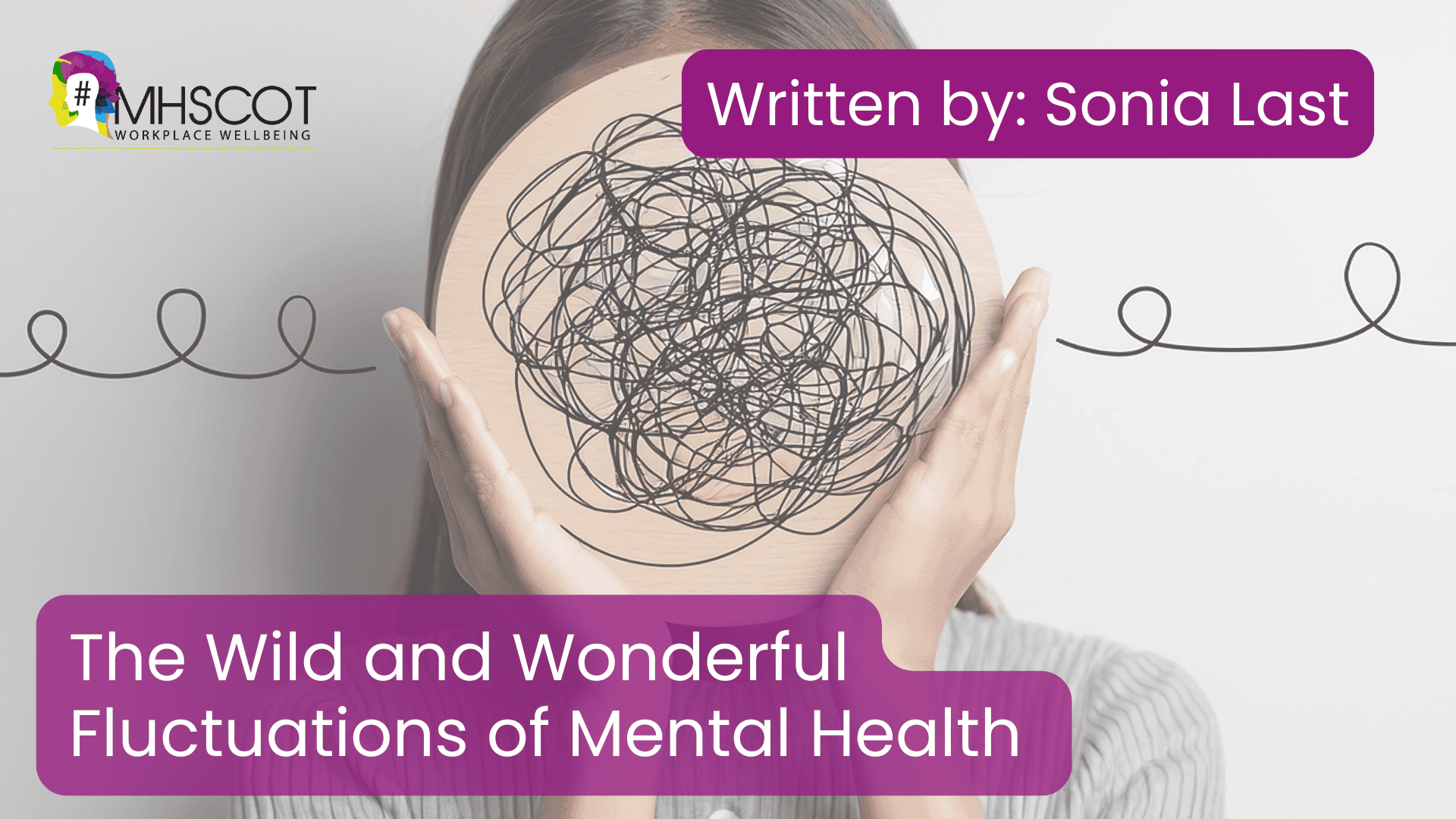
The Wild and Wonderful Fluctuations of Mental Health
3 minute read
We know that our mental health can fluctuate from one moment to the next, like the wind on a blustery day. We can be having a perfectly reasonable day and then receive unwelcome news, have an unpleasant encounter or experience something that sends our anxiety rocketing or plunges us into despair.
These fluctuations are a normal part of life, but when they are accompanied by a raft of other compounded worries, we can quickly shift from a state of general wellbeing into one of poor mental health. This can happen irrespective of any diagnosis we might have and can creep up on us by stealth.
Like other sentient beings, we live in a state of fearful vigilance and high alert to threats and opportunities, with our responses driven by immediate, passionate and complex emotions. Our seemingly civilised lives are still experienced as ‘red in tooth and claw’ as we compete for safety, security, love and recognition. Today’s predators don’t wear fur or feathers but a cloak of stress and fear. When our needs are threatened or not met, our biological responses are as visceral as ever.
Like any wi-fi connection, our highly tuned self-awareness can go awry and scramble our perspective of the severity or immanence of a threat. As sensitive beings we rely on one another to provide psychological safety through showing concern, listening, respecting our contribution and engaging us in activity. Handling conflict constructively and maintaining one another’s dignity helps to underpin this emotional safety.
As we learn to sit with our more difficult emotions and not react impulsively, we give ourselves time to think and respond in a more considered way. This skill enhances our emotional intelligence but was often omitted from our early socialisation. Developing the more gnarly self-controls can be challenging but are never learned too late. To be inclusive, we need to practice tolerance and be comfortable with diversity of thought, understanding that there is more beauty of grey areas, nuances and subtleties than in the dead absolutes.
Social acceptance is fundamental to our wellbeing, ask any chimpanzee about status, power, access to resources and symbiotic favours and they will tell you (if they could), that belonging to a group is vital to survival. This sense of belonging creates community, culture and civilisation itself and only we can provide it for one another.
Establishing a sense of fellowship requires good manners. Considerate treatment benefits both those who give it and those who receive it and it helps our social interactions to run smoothly. Minding our p’s and q’s is not just politeness but is the language of diplomacy, negotiation, collaboration and conflict handling helping us work together effectively.
By showing respect, we make others comfortable, build relationships, navigate cultural differences and maintain social order. Good manners make a good impression and enhance the social status and confidence of us all. Oscar Wilde’s insight that, ‘Manners are more important than morals’ is a social wisdom with a kernel of truth.
Thankfully we don’t have to pick the nits out of our neighbour’s hair to gain acceptance, but we do have a social responsibility to at least be pleasant if not cheerful, collaborative and kind. Showing genuine courtesy and friendliness will brighten people’s day and make us feel better too. Our social interactions, both positive and negative create a ripple effect that resonates through our social groupings and has a profound impact on our collective happiness. Some cultures understand this better than others.
The journalist Louise Janovsky* charmingly suggests how we can contribute to collective wellbeing:
‘Giving isn’t always grand. It can be as small as a nod, a moment of recognition, a kindness offered when least expected. At a time when the world turns inwards, acknowledging someone else can be its own quiet form of grace.’ ‘…we can choose to give...kindness, positivity; acknowledgement; time; compassion; an audience; a hug; a note; an arm squeeze; a message; a blessing.’
Being around people who lift our spirits is a boon to our mental health. If in an instant we can cause anxiety, alienation or hurt, we can as soon exude laughter, joy and a sense of camaraderie. It takes so little to sink our spirits, so a dash of light heartedness or camaraderie can make them soar. The influence we have over one another matters more than we can ever appreciate.
As the year comes to an end, our wild emotional fluctuations are as delicate as autumn leaves so being vigilant to one another’s wellbeing can prevent a decline and enhance the life-affirming state we all want to experience. Who needs material gifts when a cup of spiritual warmth can see us through?
Source: *Janovsky, L. The quiet power of small gestures, Daily Maverick online. 28 October 2025.)
Written by MHScot Team Member, Sonia Last.